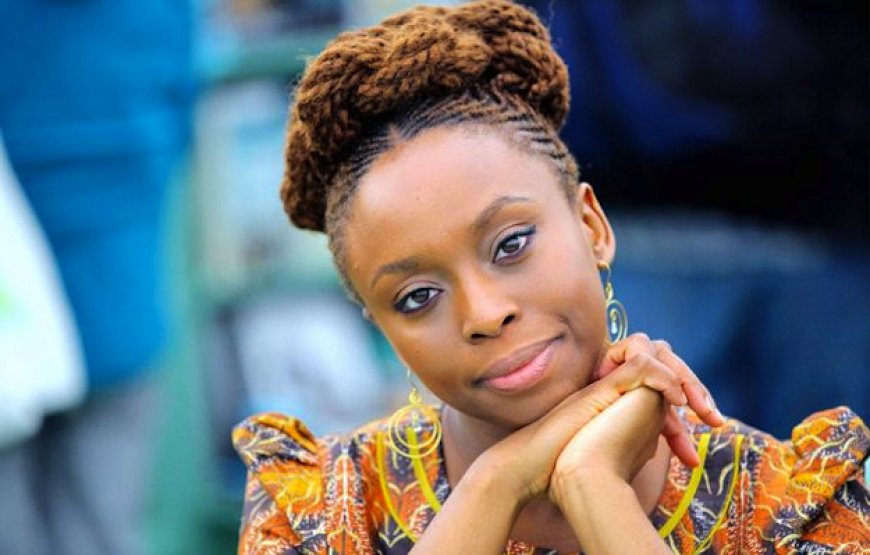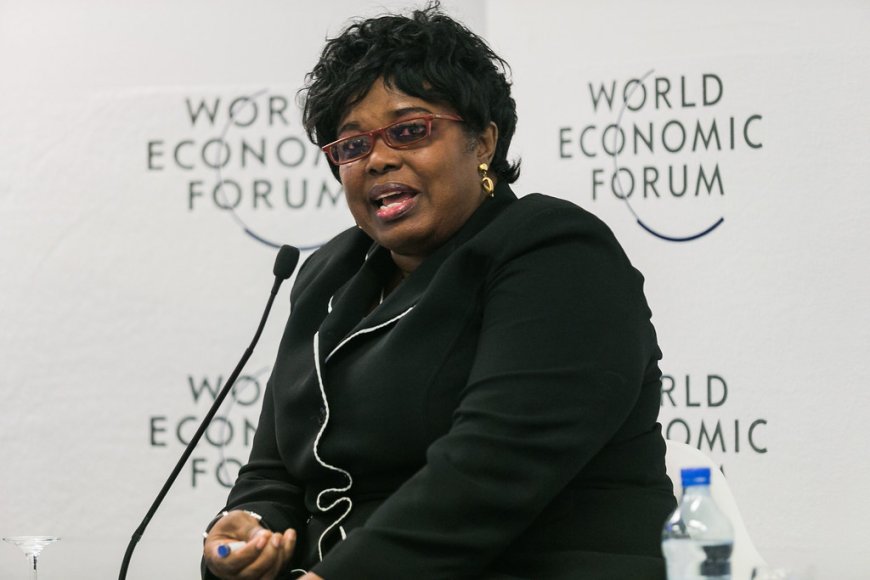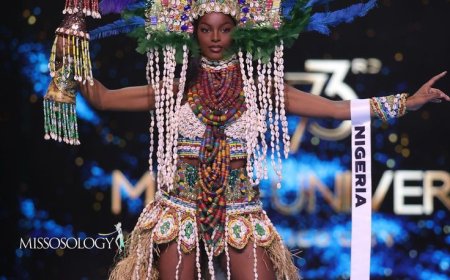FEMINISM: WOMEN AS LEADERS AND STATESWOMEN – a sidestory of PROFESSOR(MRS) PRECIOUS KASSEY GARBA
This article explores the challenges faced by women leaders, using Professor Precious Kassey Garba's experiences as a case study. It delves into the history of feminism, its waves, and its goals, emphasizing the importance of promoting women's rights and challenging gender discrimination. The article also highlights Professor Kassey's achievements and her commitment to maintaining her femininity while advocating for women's empowerment.

In every country in the world, women are faced everyday by discrimination and unequal treatments by their male counterparts. Discrimination connotes treating some people differently from others simply on the basis or the reason that they are of a particular identity different from others, in order to nullify the recognition, exercise and enjoyment of these people. Women over the years face violence, they are abused, perceived as weak and incapable of handling matters that ‘men handle’ and are likewise seen as unable to think for themselves.
They face unequal treatment at home, at work and in their wider communities. Over the years also, women have tried to prove their worth and capabilities, they have tried to show that they are not to be limited, they are strong, sensible, can be educated and provide value for their education, can handle public offices and perform excellently well, and still perform their marital and motherhood duties(if they are married or have children). Hence, the emergence of the movement - Feminism.
Women in the 18th century in America used to be disenfranchised, and so many social policies either did not include them or were not favorable to them. In short, women could not vote, own properties, nor maintain custody of themselves in marriage. Notable women like Mary Wollstonecraft, Susan B. Anthony and Sojourner Truth, were known to have addressed their points of view and displeasure at the non-inclusive system, either on their publications (‘The changing woman’, ‘Ain't I a woman’ ‘Speech after arrest for illegal publication’) or their public speeches. These would later lead to the various waves of feminism that emerged.
Now, waves of feminism can be explained as the various stages of feminist movements. In other words, the different times when feminists spoke out concerning particular facets of unequal experiences women face as different from their male counterparts.
The first-wave of feminism is defined by women's suffrage and the right to vote. The second-wave of feminism is defined by women's liberation and sexual freedom. The third-wave of feminism is defined by diversity and intersectionality of identity. Altogether, these waves had their demands including: Women's rights to vote and be voted for, Equal pay at workplace, the right to be educated, protection against sexual harassment and assaults, the right to own property, reproductive rights and protection against gender discrimination, stereotypes and performative behaviors. All these were originally the goal of feminism.
One of the many women who have had their own tastes of female discrimination and unequal treatment is Professor (Mrs) Precious Kassey Garba.

Back in the University of Ibadan, she was invited by one of my lecturers to give a lecture on feminism and women as leaders . She was appointed by the former president of Nigeria, President Goodluck Ebele Jonathan as his Economic Adviser on August 6, 2010. Her appointment however did not come on a platter of gold, she came highly recommended as she had proven herself to be excellent, fierce and capable over the years with her active participation in different areas of knowledge and her willingness to always learn. She served as Professor of Economics and Dean of the faculty of the Social Sciences at the University of Ibadan and was also Vice President of the Nigerian Economic Society between 2003 and 2007. She has received several prizes in academic research and is author of many research works on Economics.
Being a leader is not easy, what is even harder is being a female leader in a male dominated society. Professor Kamsi, right from her undergraduate days, had witnessed this. She struggled to be active in her class but was always seen as a black, not only black, but a black woman, hence the perception that she is dull, unintelligent and capable of speaking with sense. She however broke this perception when she managed to get called by her lecturer by ‘mistake’ one day, to answer a question - she did so excellently to her lecturer's surprise.
Also, while she was in class another day, the lecturer gave very offensive racial comments that reduced the African continent to nothing but primitive, backward and dark. She refused to sit still however, and boldly challenged the lecturer after the class, explaining and correcting him of the wrong notion. One notable thing that one could learn from her was the fact that the complaint, bold approach, and challenge was done in a very sensible and polite way, she did not challenge him in the class even when the other Africans sat still and took the insults, she met up with him privately to do that. This showed that even though one can be innocent of the views which people hold about us, it is good to be patient and address the matter or view in a less savage way that could make the view portrayal continue to believe the rude, untrue view they hold about one. It is mainly to show how one is well cultured.
Furthermore, when she was made the Economic adviser to the president, she was not seen or dimmed fit for the position by some people she worked with, mainly because she was a female and therefore faced some unconscious biases. She got stereotypical comments from the men at her work many times and was addressed as a ‘man’ instead of a woman. When asked why they said so, they claimed any woman that does their kind of work or shows strength and intelligence in their kind of work is a woman doing a man’s work, hence a man. This image was given by men and it was because men have been leaders for so long, the traits associated with leadership are often thought of as masculine and not viewed as achievable when exhibited by women.
In all her dealings, she maintained her status as a wife and mother, hence accountable, responsible and respectful to her family, especially her husband. However, working in the political space she was seen and expected to not be submissive to her husband or show the kind of respect she showed her husband despite working directly with the president of the country.
Being a woman also, there were many times that her ideas, suggestions and advice were ruled out while the ones given by male ministers of different sectors were accepted by the president, even though it later brought about economical problems from the bad decisions, which her team and her were later charged to resolve.
Lastly, she was invited to join a secret economic committee that held their meetings about midnight, even though she was the economic adviser herself. There was absolutely no need for this committee but she was seen as incapable of handling her position well, hence their reason for creating it. She refused this invitation however. These are limited experiences the professor witnessed and challenges she faced as there were many more which cannot be contained. However, it drives the point of what women leaders go through and the many challenges they are plagued with. While many of them remain and take the many insults and shades thrown at them, many others exit their positions when they could not cope.
WHAT THIS POINTS OUT?
Before I took a course on feminism while still in school, I held a certain ideology about feminists. There was no other perception of them than that they are ‘men haters’ who hate the idea of submission or marriage itself.
However, the foregoing explains how the use of the term ‘feminism’ originated and the purpose it was used to achieve.
Professor Kassey’s speech is a reminder of what feminism is as against this preconceived notion I developed about it. Feminism, although it advocates for women's rights, it does take away women's natural identity of being feminine. In Professor Kassey’s story, although she stood out for herself in many cases against inequality and discrimination, she did not deny her femininity nor did she advocate against men.
In all, feminism is not to put off the cloak of womanity, it is to be bold, strong, hardworking and unintimidated.
What's Your Reaction?






































































































